The special journeys of waste
Looking at the lush fruit gardens, the flocks of chickens and pigs growing healthily, few people believe that they are "cultivated" from the amount of waste that people throw away. Through the skillful hands of women, waste has been revived with new, practical values. They call it the "second journey" of waste - a journey that contains many useful tasks and illuminates the message of environmental protection.
Nurturing life from waste
In Dong Can land of Dai Dong hamlet, Thinh Son commune, Do Luong district, more than 300 dragon fruit trees of Ms. Nguyen Thi Sau's family (born in 1969) grow green and flourishing. This is the third crop of trees that have produced sweet and fragrant fruit. Ms. Sau's dragon fruit is really popular, with traders buying it right from the field. One thing that makes this dragon fruit garden special is that all the fertilizer used for the trees comes fromorganic waste sourcesof the family.
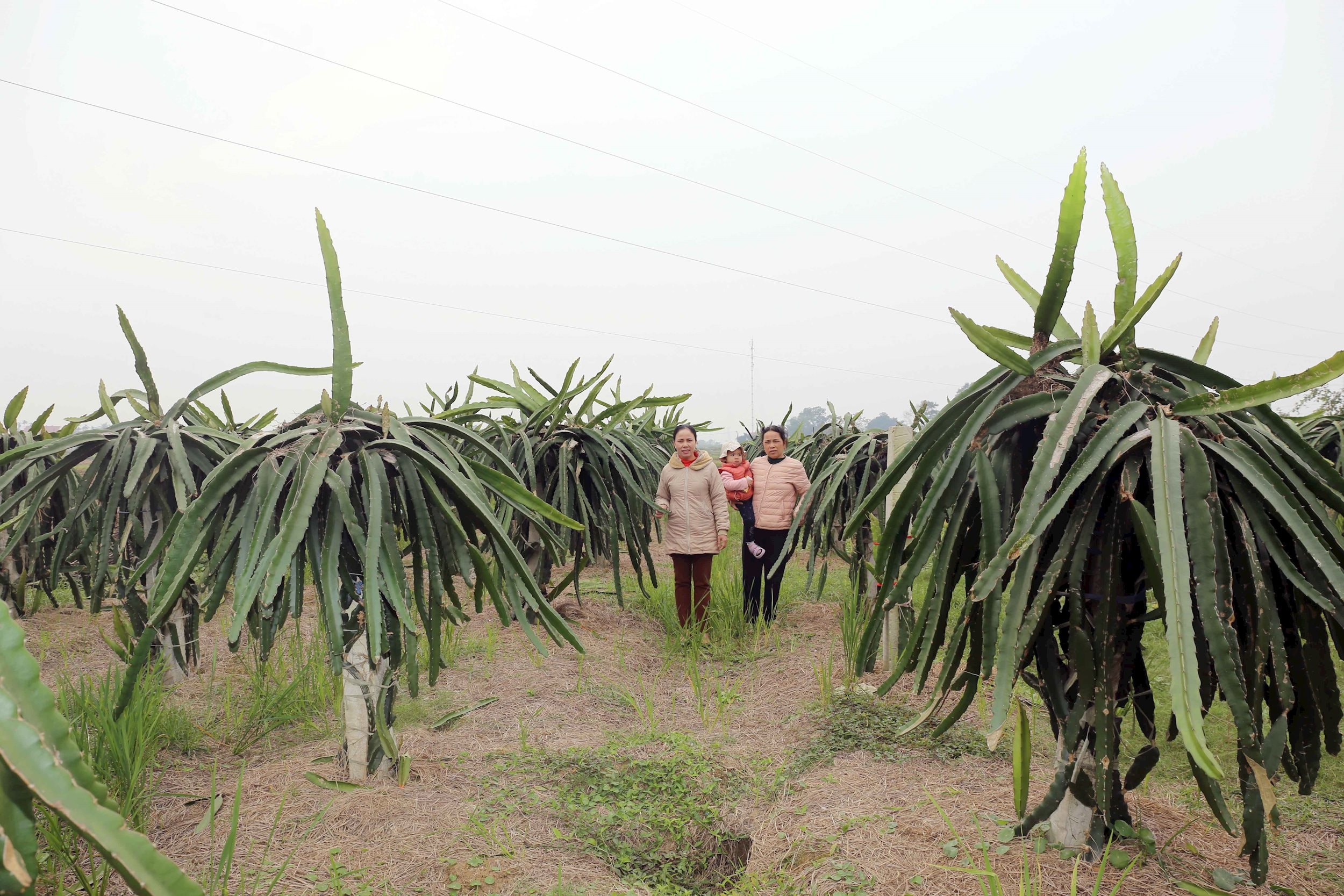
While skillfully covering each dragon fruit tree with straw, Ms. Sau smiled and shared that she had developed the dragon fruit growing model on this rice field since the end of 2022. At that time, the amount of fertilizer that the family used was usually manure or chemical fertilizer. However, using manure makes the plants susceptible to disease. Using chemical fertilizer is expensive and the soil is easily degraded.
Then, at the end of 2023, she was instructed by the Women's Union of the commune on how to make bio-fertilizer from waste, and her model turned a new page. From the amount of organic waste such as leftover food, vegetables, spoiled fruits, and corn leaves, she cleverly put them in the compost bin withmicrobial productsAfter just a few months, the waste has been composted into loose organic fertilizer and can be put into use.
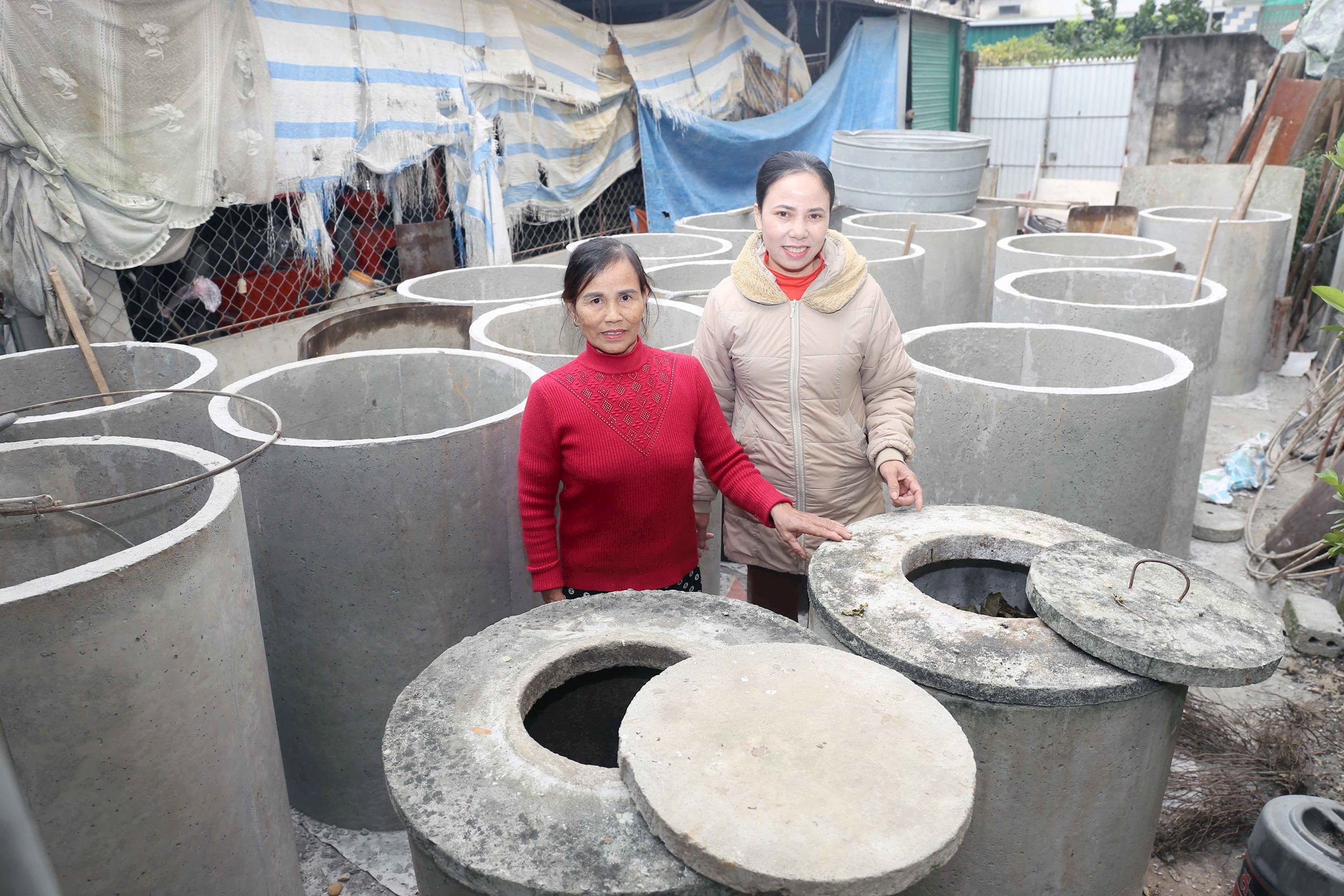
Cherishing the juicy dragon fruits, Ms. Sau said that since using fertilizer from organic waste, the dragon fruit area has significantly reduced pests and diseases, saving costs while increasing the quality of the fruit. After seeing the effectiveness of the model, people in the area have also applied it together. Currently, the whole Thinh Son commune has nearly 250 households proactively using microbial fertilizer from organic waste to serve production. Thanks to that, the amount of household waste has decreased significantly, ensuring environmental hygiene and helping plants grow greener and achieve higher yields.
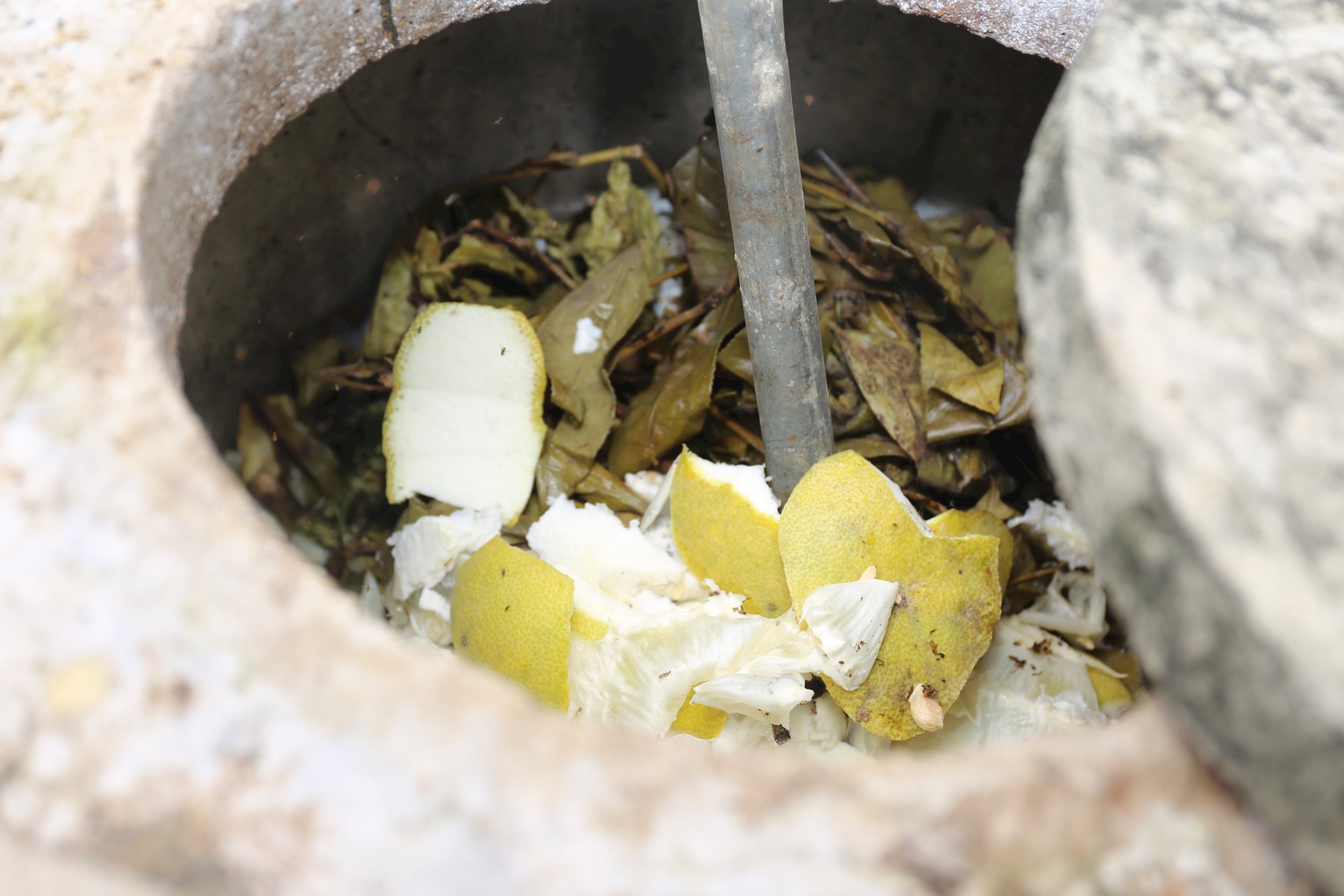
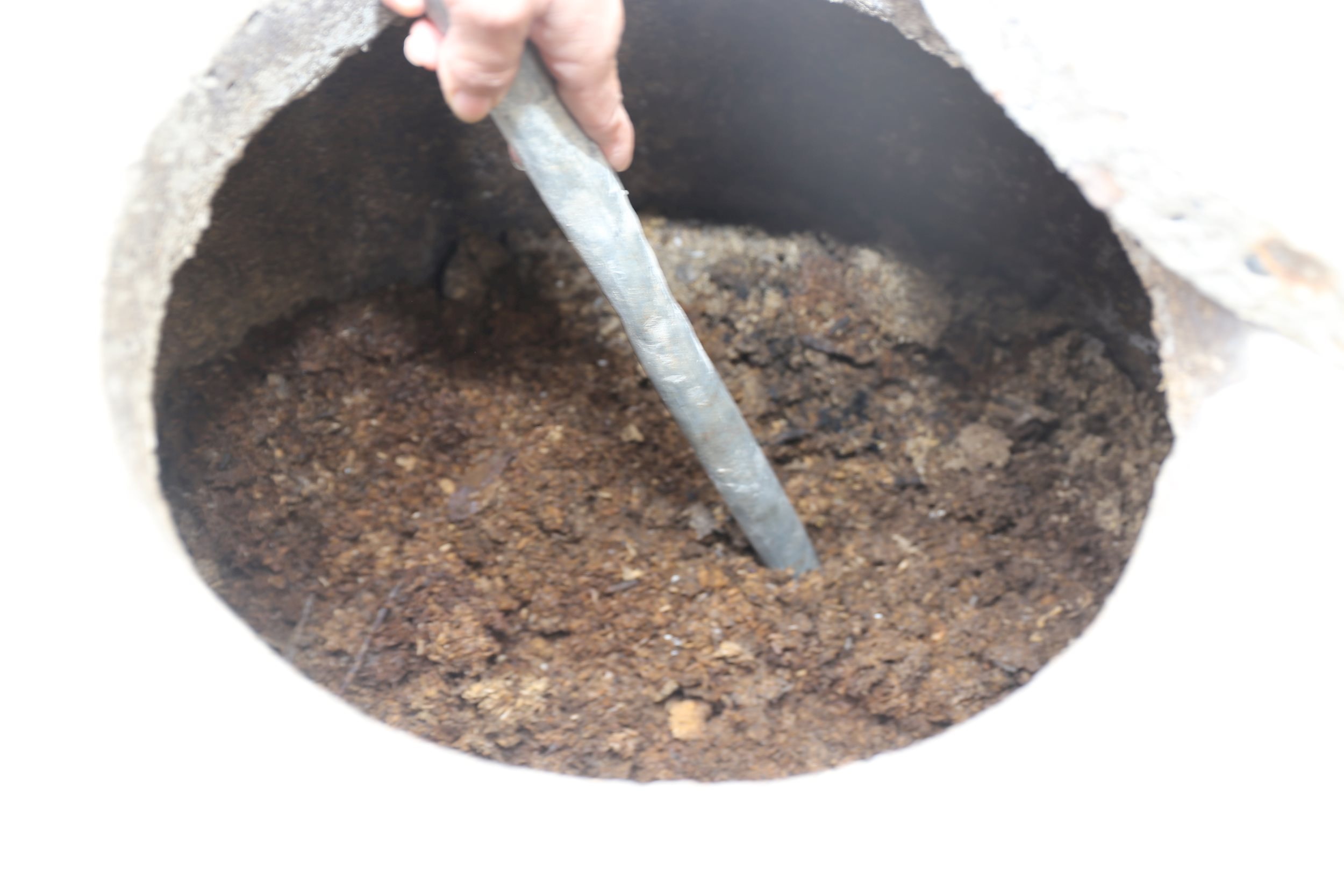
Not only making bio-fertilizer to serve the family's growing needs, every Sunday, the waste collection team of Thinh Son commune will collect and transport about 15 tons of organic waste in the commune to Doi Choi farm - a typical high-tech agricultural farming model of Do Luong district located in Thinh Son commune. This amount of organic waste is processed by the farm into bio-fertilizer, making an important contribution to caring for the farm's crop system. Day by day, 15 hectares of vegetable and fruit cultivation of Doi Choi farm are growing greener and greener, proving that: Waste can also bring great value if we know how to utilize and revive them.
Turn waste into useful work
Not only turning waste into bio-fertilizer, through the skillful and dedicated hands of women, waste is also transformed into valuable gifts to support the unfortunate.
This is clearly demonstrated in Thuan Son land, Do Luong district. Following Ms. Nguyen Thi Thu Hien - President of the Women's Union of Thuan Son commune, we were present at the family of Ms. Le Thi Huong (born in 1976), in Thuan Ly hamlet - a difficult situation that has received much valuable support from the scrap sale fund of the women's union at all levels.
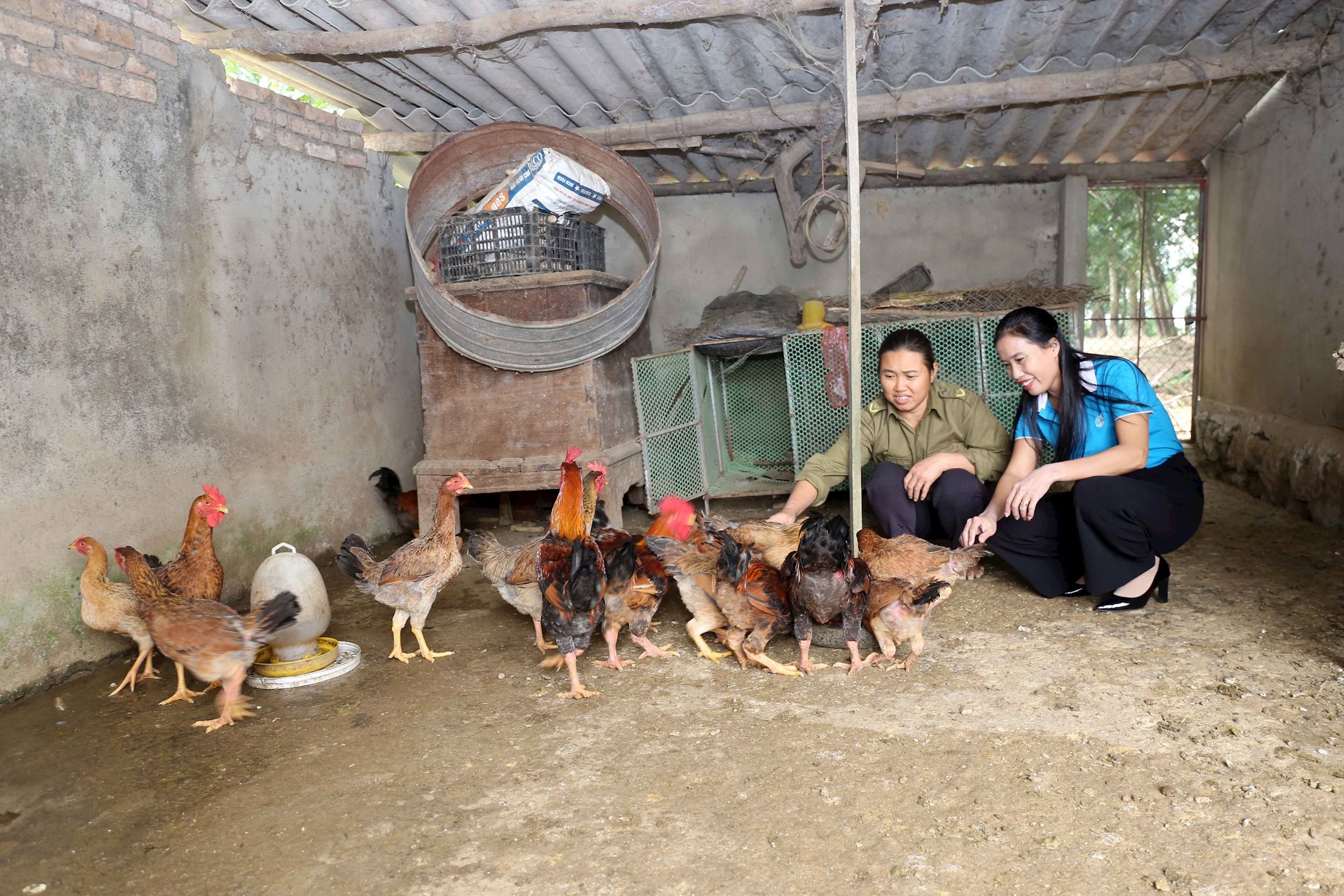
Ms. Huong is a poor household in the commune, having to raise a child with a serious illness, so her situation is extremely difficult. Understanding that, the women's associations at all levels in the commune agreed to use nearly 3 million VND from the waste collection fund to give her a flock of breeding chickens, to support her family in developing a livestock model. Now, Ms. Huong's family's flock of chickens has grown well, each weighing around 3 kg. With a clever production rotation method of both selling meat chickens and breeding chickens, Ms. Huong's family has an additional stable source of income to develop the economy.
Also in 2024, from this fund, women in Thuan Son commune also bought a pig worth nearly 3 million VND to give to the family of Ms. Tran Thi Tien (born in 1991) - a single mother in difficult circumstances in Thuan Dong hamlet. Although the gift was not too large in terms of material, it was a meaningful source of encouragement for Ms. Tien to ease the current difficulties.
Recently, the practice of sorting waste to raise funds for women in difficult circumstances has become a valuable habit for families in Thuan Son commune. The amount of inorganic waste is carefully sorted by families into two main types, recyclable inorganic waste such as plastic bottles, cans, cardboard and old books and newspapers will be collected by the association and sold to scrap yards. As for clothes, blankets, old rags, the women in the association will also collect them to sell to motorbike and car washing facilities. The money collected will be added to the association's fund to buy seedlings, animals and insurance cards to give to members in difficult circumstances in the commune.
On average, each year, 9-10 million VND is generated from this activity to carry out meaningful activities. Since 2021, 14 women in difficult circumstances have been awarded 6 health insurance cards and breeding chickens and pigs. Along with that, the women's associations have given gifts to support 12 poor students to go to school to study well. From seemingly worthless garbage bags, the women here have turned them into a source of livelihood, into useful work for the community.
Activities such as making bio-fertilizers or raising funds to support disadvantaged women, though simple, are full of meaning in the journey of spreading love of more than 45,000 women's association members here. Up to now, there have been more than 6,241 models of waste classification and treatment at source and nearly 4,000 members, women and children in difficult circumstances have been helped by this source of income.
Every day, many creative models of women are replicated to create different "missions" of waste in life. The "second journey" of waste in Do Luong district is a humane story about sharing, about the effort to turn seemingly useless things into sustainable values in the current pace of life.Ms. Thai Thi Hien - President of Do Luong District Women's Union

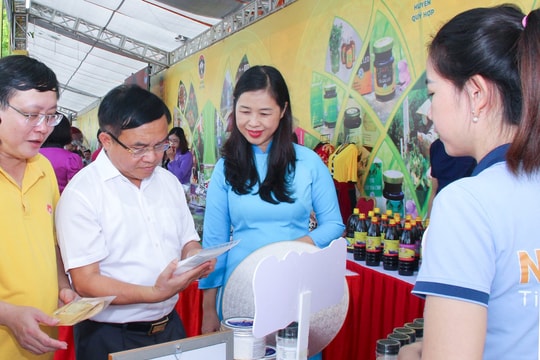
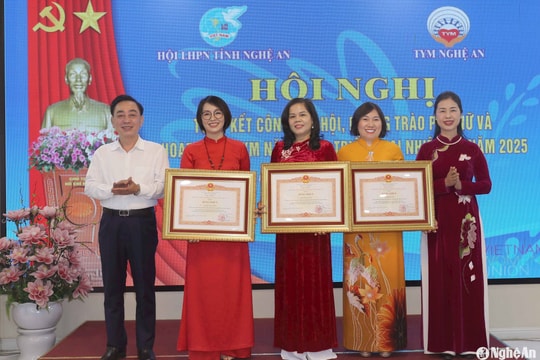
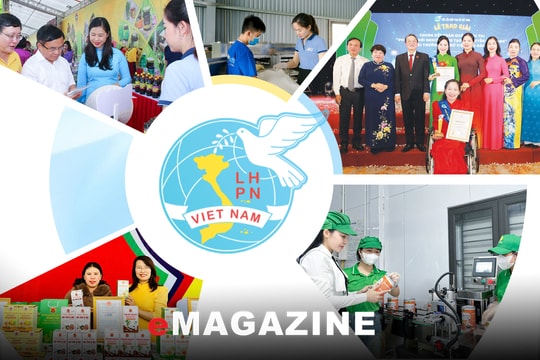
.jpg)

